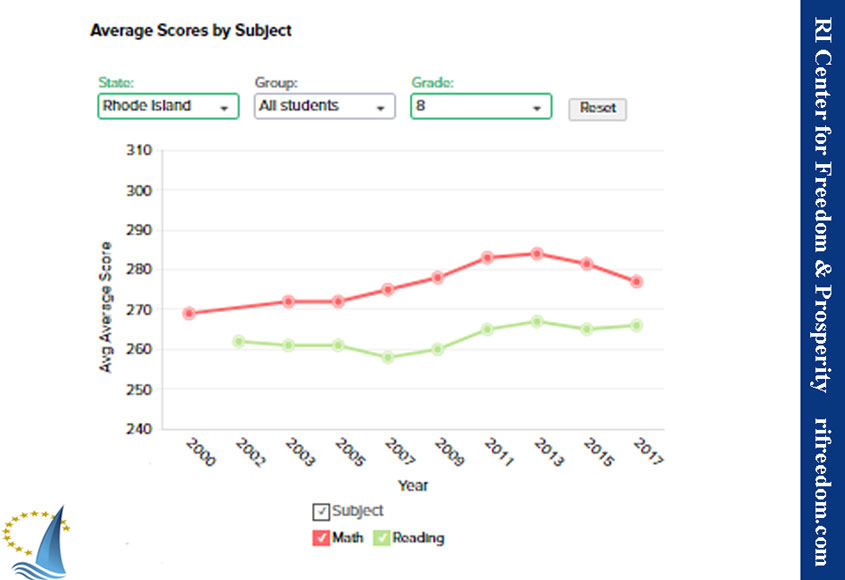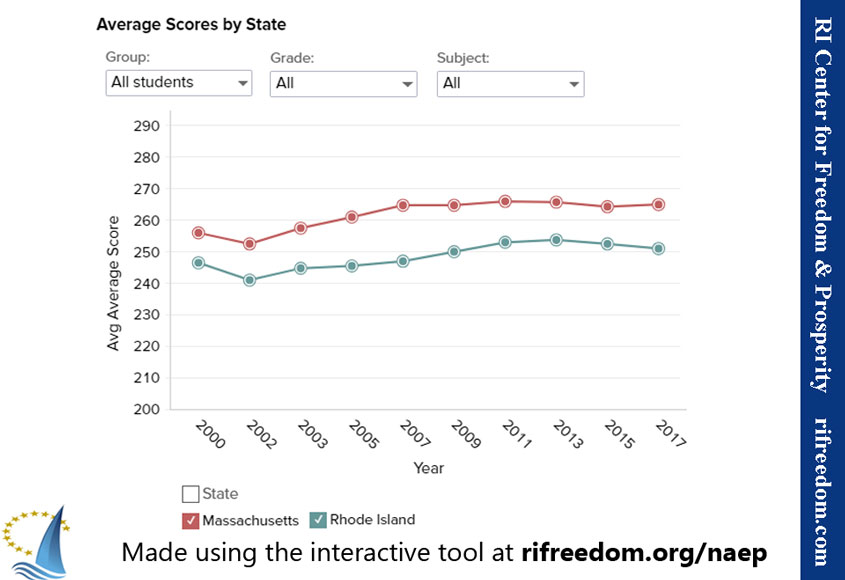The word “pleased” should not have appeared anywhere in the statement of Rhode Island Education Commissioner Ken Wagner upon release of 2017 scores on the National Assessment of Educational Progress (NAEP) test:
“Nationwide, results on the National Assessment of Educational Progress remained relatively flat, and we saw a similar trend in Rhode Island,” said state Education Commissioner Ken Wagner. “I’m pleased to see us perform better than the national average on fourth grade reading… I hope that our work around early literacy as part of the Third Grade Reading Challenge will speed up that progress going forward.”
That’s like being happy that your child is vomiting a little bit less than half the kids in the sick ward. Never mind that his or her fever is slightly higher, his or her bleeding out of the eyes is slightly worse, and he or she is slightly more delirious than half the children.
According to the data, Rhode Island students don’t break the 40%-proficient mark in either 4th grade or 8th grade in either math or reading (or science or writing, for that matter).
For some quick perspective take a look at the RI Center for Freedom & Prosperity’s States on the Nation’s Report Card tool, which has been updated to include the latest data. Rhode Island’s 4th grade reading scores may be above the average state, but we used to have a lead of three points, and that’s now only two. Worse, the Ocean State’s 8th grade math scores have fallen off a cliff. Since the 2013 test, RI students’ average score has dropped from 284 to 277. That’s 2.5%. In 2013, our children were scoring the same as the average state… no longer.

More broadly, the fashionable distraction to which state bureaucrats lead, which journalists follow, is to lament that “achievement gaps between white students and students of color continue to remain stubbornly high.” This emphasis manages to imply that the real challenge isn’t a broken educational system, but institutional racism, and to lead white parents to think the state’s problems belong to other people, but it disguises the more disturbing conclusion.
Combining 4th and 8th grade scores on reading and math, black students in Rhode Island are actually slightly outperforming their peers in the average state. Hispanic students in Rhode Island do worse than in the average state, but they track closely with black students, which is more typical in our region.
The big drop in Rhode Island is actually among white students, who are the majority. Managing to keep Rhode Island’s minority students relatively flat has actually helped keep up our scores. To the extent that Rhode Island has addressed its “achievement gap,” it has been by failing white students even more.
As I wrote in 2015, the data is strongly suggestive of a change during the governorship of Democrat Lincoln Chafee that looks like a ceiling on Rhode Island’s progress in reforming education. If anything, we can now see that the trends have worsened, rather than improving, under his successor, and the spin should no longer be tolerated.


